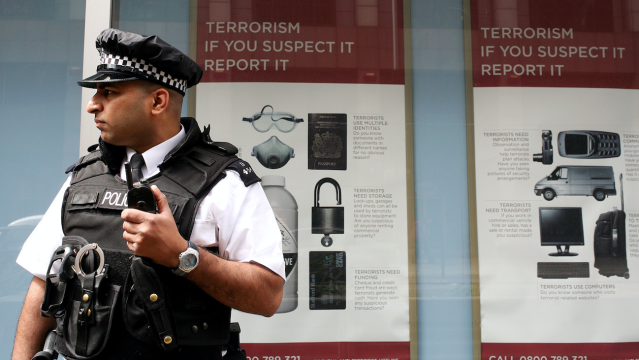Police in West Yorkshire, England are rolling out mobile fingerprint scanners to instantly identify criminal suspects and people “experiencing a medical emergency”. Two hundred and fifty mobile devices are being deployed in West Yorkshire, and the British government says the tech will come to 20 police departments across the country by the end of this year. The scanners remotely check a person’s fingerprint against criminal and immigration databases, which experts say bypass safeguards against police overreach. The process takes less than one minute.
Photo: AP
The mobile scanners check fingerprints against two national UK databases: IABS and IDENT1. The Immigration and Asylum Biometric System, IABS for short, records biometric data on foreign nationals in the UK, including where they came from and, when they travel out of the country, their destination. IDENT1 holds data on anyone in the UK that’s been arrested, including what they were suspected of.
“From an operational perspective, they quickly open investigative leads into serious crimes and can often reveal the associates of an otherwise unknown victim,” said Andy Battle, assistant chief constable of the West Yorkshire Police, in a press release. “Likewise, they can immediately identify suspects who attempt to give false details and will prompt people to be more forthcoming in the first place.”
The press release states that on-site fingerprints are immediately deleted after they’re checked against the database. Martha Spurrier, director of UK advocacy group Liberty, says that isn’t enough.
“With taking fingerprints or interviewing subjects, there’s a really good reason people have to take suspects to the station, because it [allows for oversight],” she told The Verge. “These are safeguards to make sure a police officer isn’t wandering around an estate, fingerprinting people at random.”
Biometrics and remote policing are becoming standard in law enforcement. Whereas originally officers would have to compare prints in a station, now they can do it remotely and almost instantly. Similarly, officers can remotely identify people based on their licence plates as they drive, from surveillance drones, and perhaps one day body cameras.
